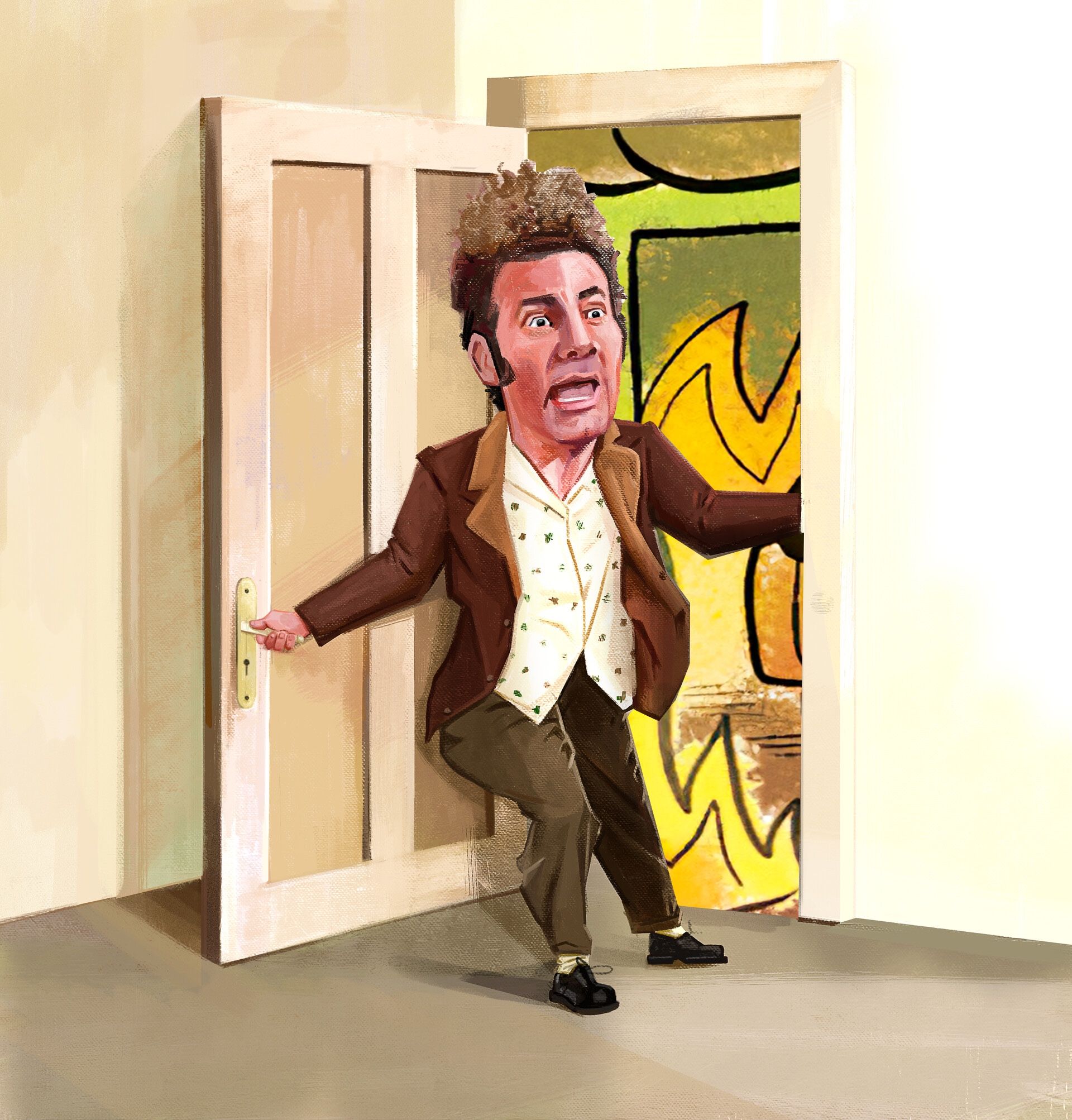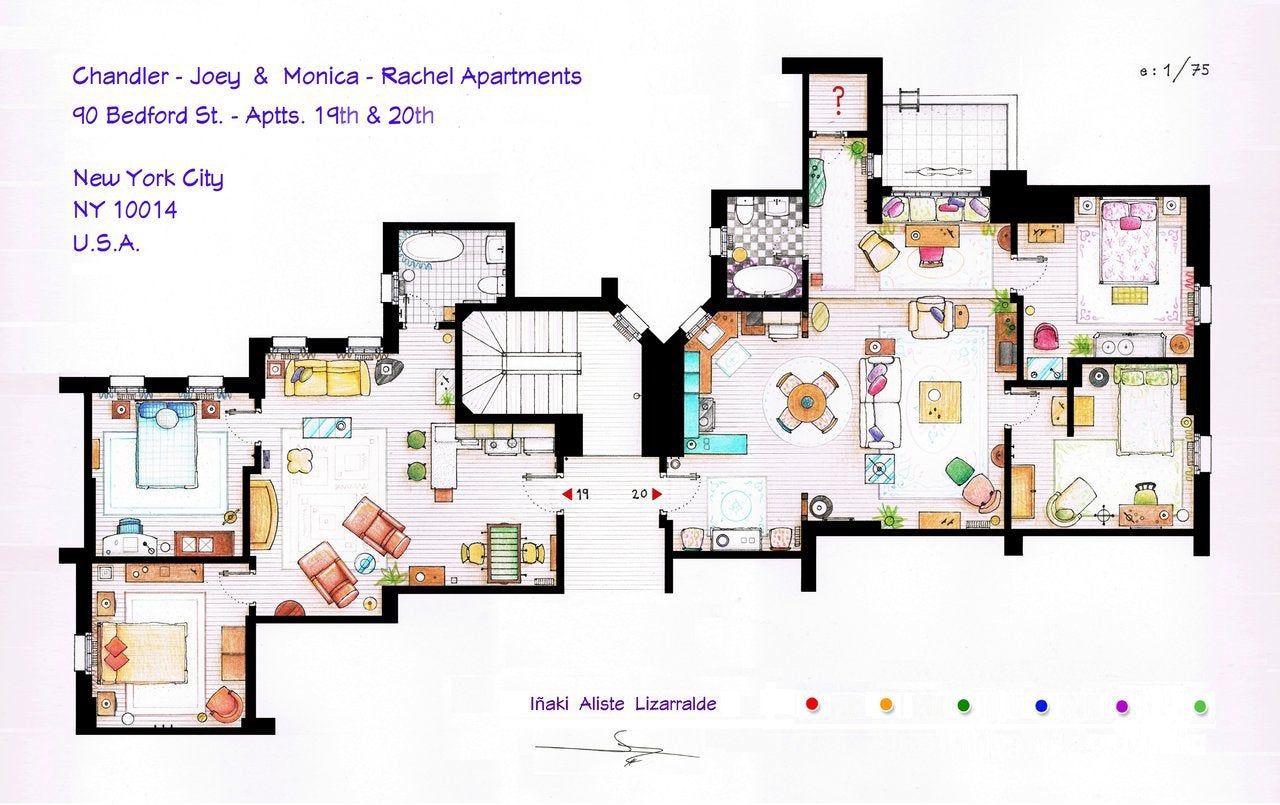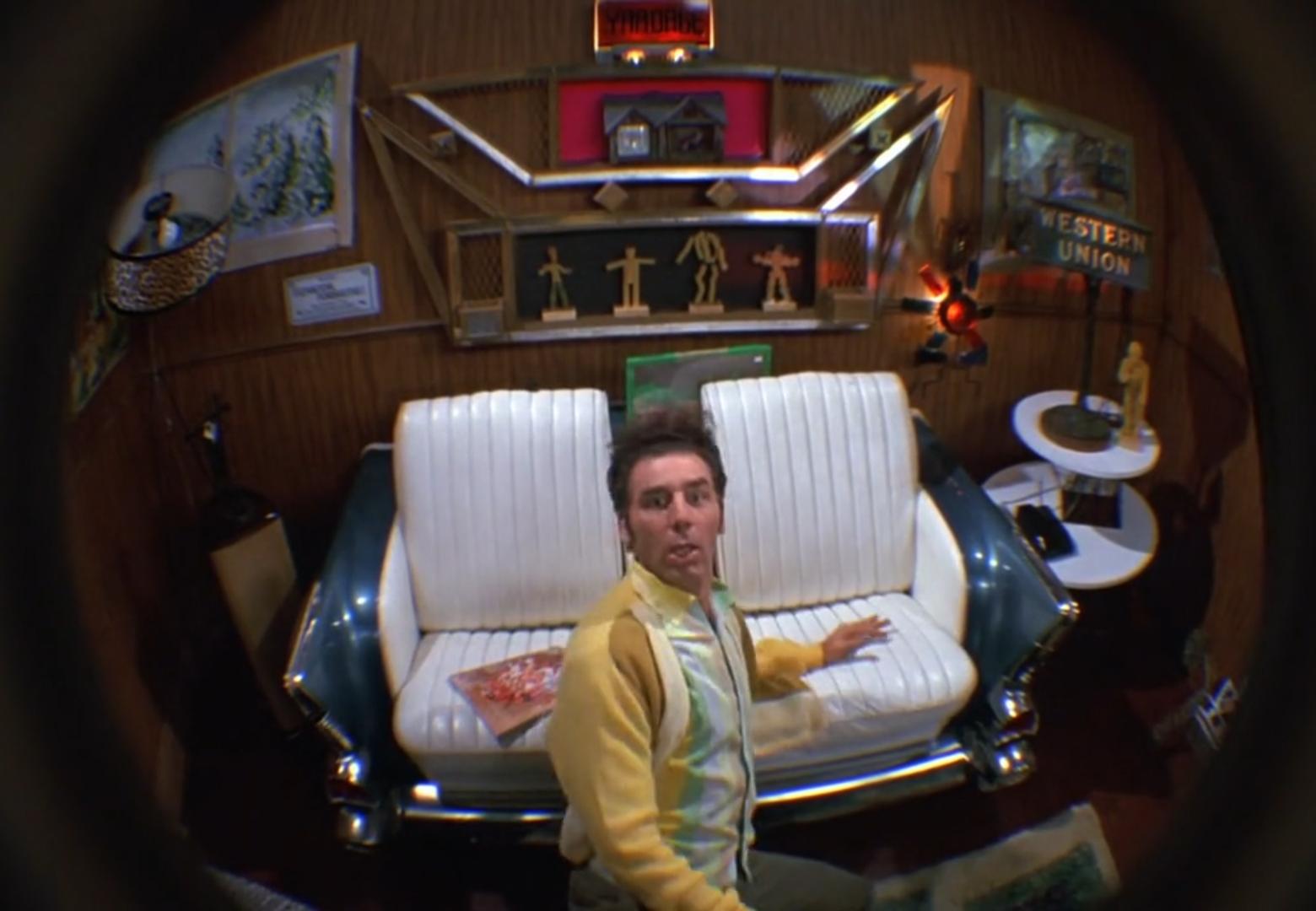How American Comedy Is Science Fiction
SOCIAL science fiction

If comedies were set in actual America people would be worried about health, rent, and food all the time. Every story would be a dreary nature documentary about human survival. It wouldn't be very funny. That's why most American comedies are (social) science fiction.
Instead of being set in America, they're set in a soundstage America, where the apartments are bigger, everyone has time, and reality doesn't intrude. They're mostly set in a utopian world which looks like reality but where all the broken parts of American society are fixed. The only problems are interpersonal.
Creative license is, of course, used in all cinema. Globally everyone maintains the fiction that car chases can happen in traffic-clogged cities, that technology always works, and that anything at all can be accomplished in five minutes. However, the collapse of America society has been so much that the gap between its fictional and real worlds is not just physical. It's economic.
Most comedies—though they purpote to be about strange people—are really set in the same fictional utopia where people even have money and time to get up to hijinks at all. Syndicated comedies cannot exist at all in normal reality anymore, without the TV tropes like "Friends" Rent Control and the One-Hour Work Week, for example. It would all be black humor, and where's the fun in that?
Friends Rent Control

In the show Friends, Monica and Rachel lived in a 1,125 square foot West Village Apartment while working as a waitress and in retail. They also didn't work much and were periodically unemployed. Their fictional rent was around $200, which even for the 90s was just science fiction. Rents were easily $2,000 in the 90s.
While the apartments in Friends are certainly physically possible, economically they are not. It's pure social science fiction.
One-Hour Work Week

In Seinfeld, Cosmo Kramer—on strike for 12 years from his bagel shop—lives next door to Jerry Seinfeld, a successful comedian. Kramer does a zero-hour work week, possibly even negative.
This is a common trope where A) characters are given time to do things besides work and B) classes mix. Unemployed people and artists are prominent in social science fiction whereas they are completely marginalized in actual American society. This makes for better TV and would make for a better society, but it's simply not how America is.
Seinfeld was a show about people doing nothing, but an accurate American show would be about apartments doing nothing. A huge amount of housing is just empty (as investments), including nearly 50% of New York's Billionaires' Row.
Space and Time
As you can see the physics are of our world, but the economics is not. This is the nature of social science fiction. For human stories to exist, people need space and time to mingle, move, and do dumb shit. Students need to not be studying, workers need to not be working, people need to periodically disappear on zany schemes.
In actual America, however, people don't even get paid time off to have a baby. Having a job isn't even enough to live in a city at all. Places aren't connected or walkable and you're not just dropping by to see friends. In truth the only place that a functioning society exists is through the window of a TV screen, where you can see a world that looks—on the surface—just like yours, but is in fact a complete fantasy.
Atlanta

One of the few shows that it shows what it's like to be broke is Donald Glover's Atlanta. This show is usually called surreal, but it's actually the most realistic thing out there. It's literal 'black' humor. In Atlanta, the main character Earn can't earn enough to keep afloat at all. He can't replace his phone, has to report his credit card stolen after an expensive date, and finding a place to live. Unlike other shows where these might be isolated punchlines, in Atlanta these are just punches to the gut.
While Atlanta is a great show, however, it's not what I watch on repeat on YouTube. It's not what thrives in syndication. Nobody wants a window looking back into their own home. People want an escape, and for Americans that means escaping from their society as it actually is. Americans want social science fiction, where friends still run into each other, where people have time for personal problems, where families still exist or are reconstituted through work or friendships. As the gap between their society and their illusions of a society grow every wider, you can see it stretching into an increasingly absurd chasm on screen. Finding yourself in New York? Bitch, you need to find money.
And so you we end up with this strange branch of science fiction which doesn't call itself that at all. American comedies look like they're set in 'reality', but it's really a another world. It's a social science fiction—where the gadgets, physics, and timeline of the world is exactly the same—but the society is completely strange. It's an LED capitalist utopia, while everything outside is deranged.